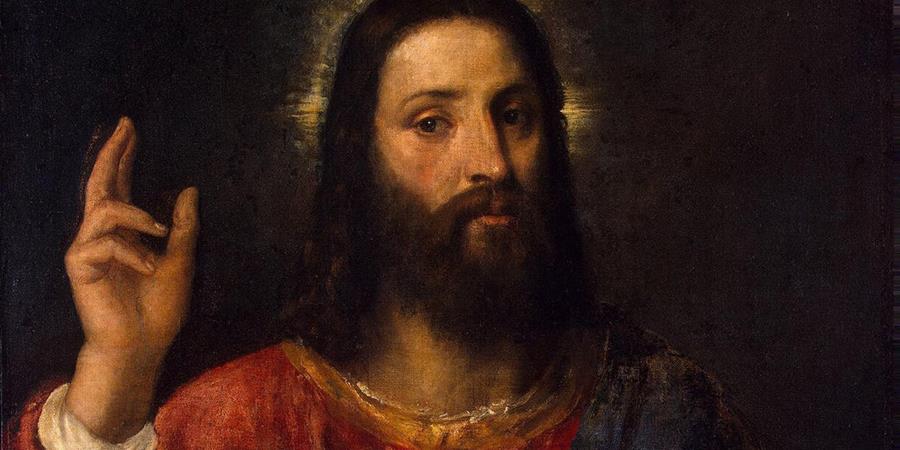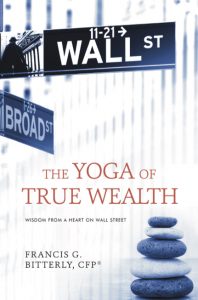It is a great discovery when one realizes that Buddha’s Nirvana, Christianity’s Salvation and Vedanta’s Self Realization are one and the same at the deepest level.
Only a rare seeker may ever journey down the well deep enough to realize it.
I truly love Jesus Christ and consider him to be God in form and Spirit having surrendered my life to him. Yet I have great understanding and respect for seekers who may have a different God in form that they may love and worship. What is most important is to know the Truth of what he was teaching and to go beyond religion. This Truth will set you Free.
I have great love for all the other traditions and in my case owe my understanding of Jesus’s non-dual teachings to my study of Buddha, Advaita Vedanta, Ramana Maharshi and Nisargadatta Maharaj.
Reaching this deepest level of Truth that many of the World’s Wisdom traditions try to point to is dependent on a fundamental reality that only one can undertake within one’s Self. Without realizing this great reality one may never cross the metaphorical Rubicon.
The fundamental reality I am alluding to is well described by Michael James in his book “Happiness and the Art of Being”. James is an academic and devotee of Sri Ramana Maharshi whom many including Carl Jung and Mahatma Gandhi considered to be the greatest Sage and most perfect Brahmin of the 20th century. I personally love Ramana and credit him for teaching me what my Guru Jesus Christ really was trying to convey about true Salvation.
James puts it this way:
“This individual consciousness – our feeling ‘I am a person, a separate individual, a mind or soul confined within the limits of a body’ – is merely an imagination, a false and distorted form of our pure consciousness ‘I am’, but it is nevertheless the root cause of all desire and all misery. Unless we give up this individual consciousness, this false notion that we are separate from God, we can never be free of desire, nor of misery, which is the inevitable consequence of desire. True self-surrender is therefore nothing but giving up the false notion that we are separate from God. Another term that is commonly used, both in Buddhism and in advaita vēdānta, to describe this state of annihilation or extinction of our personal identity is nirvāṇa, a word that literally means ‘blown out’ or ‘extinguished’. This is the same state that most religions refer to as ‘liberation’ or ‘salvation’, because only in this state of true self-knowledge are we free or saved from the bondage of mistaking ourself to be a separate individual, a consciousness that is confined within the limits of a physical body.
In Christianity it is called the ‘original sin’, which is the root cause of all misery and unhappiness. Because we can become free from this ‘original sin’ only by knowing the truth, Christ said, ‘[…] ye shall know the truth, and the truth shall make you free’ (John 8.32). The truth that we must know in order to be made free is the truth that we are nothing but the adjunctless pure consciousness ‘I am’ – that ‘I am’ which is the true form of God, as disclosed by him when he revealed his identity to Moses saying, ‘I am that I am’ (‘ehyeh asher ehyeh’ – Exodus 3.14).(1)
James continues: When Christ was asked when the kingdom of God would come, he answered, ‘The kingdom of God cometh not with observation: neither shall they say, Lo here! or, lo there! for, behold, the kingdom of God is within you’ (Luke 17.20-21). The kingdom of God cannot be found by observation, that is, by any form of objective attention – by looking externally here or there. It cannot be found in any place outside us, either here in this world or there in heaven, nor indeed is it something that will come in the future. It exists within us even now. To see and enter into it, we must turn our attention inwards, away from the external world of time and space that we observe by means of the limited flesh-bound consciousness that we call our ‘mind’, and towards our true consciousness ‘I am’, which is the underlying base and reality of the observing consciousness ‘I am so-and-so’. The exhortation ‘behold’ that Christ used in the above passage is very important. He did not merely tell us the fact that the kingdom of God is within ourself, but exhorted us to look and see that it is within ourself. That is, he did not merely tell us the truth that he saw, but told us that we should each see it for ourself. In more modern English, we would express the passage ‘[…] neither shall they say, Lo here! or, lo there! for, behold, the kingdom of God is within you’ as ‘[…] and they should not say, ‘Look here or look there’, because, see, the kingdom of God is within you’. This exhortation that Christ makes to us not to look here or there but to see that the kingdom of God is within ourself, is the essence of the spiritual practice taught by Sri Ramana and all other true sages.(1)
Remember St. Francis’s words: “what you are seeking is the seeker himself”.
Wishing you much peace on the journey
Footnote(1) Michael James – Happiness and the Art of Being: An introduction to the philosophy and practice of the spiritual teachings of Bhagavan Sri Ramana (p. 24)


